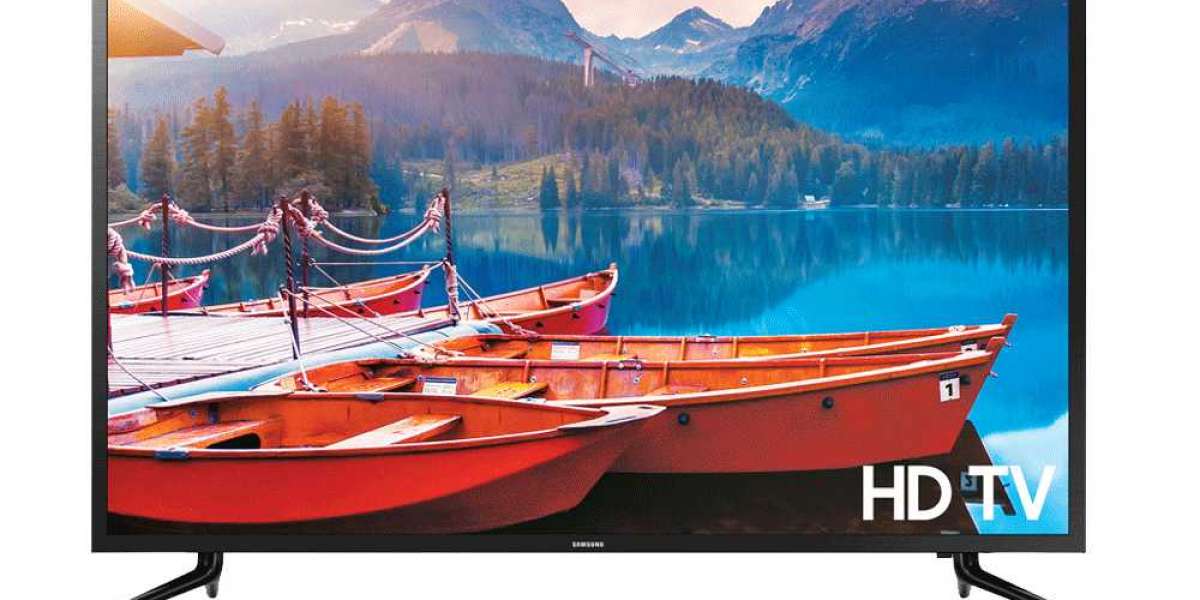What's a Smart TV, and why buy one?
Here is whatever you want to know about Ultra High Definition television - and why it's all-but-essential now. Tech continuously changes, and that is especially true in the case of televisions. The viewing experience appears to change at a dizzying rate, and television-watchers -- in other words, almost the entire world -- come to expect more and more from their displays.
What was once a buzz-phrase is currently the standard: 4K? But what is 4K, and does it count for anything? Read on for our explainer about just what the phrase means, should you invest in smart television, and what to watch out for when you're buying a smart tv.
If you are in the market for a new television, don't miss which television to buy manual. For a list of intelligent televisions currently on our offer, don't miss our selection of the most excellent LED TV deals.
What is a smart tv?
4K, as you have probably guessed, is short for 4,000. To be exact, images that are 4K in caliber measure 4,096 from 2,160 pixels in resolution. By comparison, a Full HD picture steps just 1920 by 1080 pixels, so a Samsung smart tv offers four times better image quality than a full HD television. And it is even better still than the HD Television.
Samsung TV offers you a picture of such depth and clarity. To see one for the first time can be a pretty breath-taking experience, and returning to HD television afterward is like coming back to Kansas after visiting Oz.
You'll frequently hear the phrase ultra HD', and'4K Ultra HD' -- ultimately, they all refer to similar technology. Nevertheless, 4K and Ultra HD pictures are not the same since they have different aspect ratios.
Yes, that's technically less than 4K in width. Why is the phrase'4K' used? To get fair, it is simply because it drops off the tongue quickly: its textbook tech jargon. Some television manufacturers only use the expression Ultra HD, but in technical terms, it's completely interchangeable with 4K.
Why buy a smart tv?
There is that Stunning, ultra-crisp picture quality, of course. But let us assume for a minute that cutting-edge screen quality is not your priority, and you're more concentrated on spending your money sensibly.
If you are in the marketplace for a new television, you will be hard-pressed not to obtain a 4K collection. It's more or less getting the absolute standard for most television manufacturers. There are exceptions to this: if you're looking for a more compact set for your kitchen counter possibly, then you will often find these are still just Full HD. That is because this site's display doesn't need to include the 8-plus million pixels of Ultra HD television -- your eyes won't value them. To learn more about choosing the right-size tv for your viewing area, you can read out which size television should buy? Content.
But for tv sets of 43-inch and more extensive, short of moving into a second-hand appliance store, you're likely to fight to find some non-4K collections made in the past couple of decades. Oh, and if you are wondering when 4K itself will go the way of Full HD, Standard Definition, and cathode rays, it is already happening -- you'll already see 8K places available in the industry. But these are prohibitively expensive, and the tech only really shines on enormous 75-inch to 85-inch televisions. So breathe easy: you are okay with 4K for the time being.
You may have already believed: ‘it’s one thing to have a smart television, but what material can I see in 4K?' If that's the case, you will be pleased to hear that each of the powerful streaming platforms delivers 4K articles to 4K-ready screens—4 K offering certain content in Ultra HD and will doubtless provide more and more in the future.
One thing you should remember, though, is that streaming 4K content uses up a considerable amount of your internet bandwidth -- about 25Mbps. If you are unsure whether your existing broadband is acceptable for 4K streaming, make sure you read out which broadband rate I need information.
What to look for if buying an intelligent television
If you are purchasing an original TV, you can reassure yourself that any 4K content you watch will probably be of a certain quality. But not all smart TVs are created equally: here is where things become a bit more complicated.
HDR
With a smart TV, you know you will have those eight million-odd pixels in front of you. But how good they're introduced is determined by the television's HDR or High Dynamic Range. HDR is a sort of technology that ensures a strong contrast between the bright and dark pixels in the image and an ample range of colors. In the end, it is about getting those pixels to mimic actual reality as accurately as you can.
Right now, our advice is not to get too hung up about HDR when purchasing a smart television, however much the producers might be championing whichever formats their tv affirms.
QLED and OLED
By contrast, OLED and QLED technologies are something that does make a difference -- most notably in the corresponding price tag. Both televisions are the same size; both are 4K. Why the price difference?
Since the latter is a flagship television that showcases the newest illustrious QLED technology.
However, QLED Technology is only that of Samsung. Another type of image tech you will see elsewhere is OLED. You'll find OLED screens in high-end televisions from all-powerful brands -- all except Samsung.
OLED Televisions typically cost on the far side of taka 28,000, with larger flagship models costing two or even three times as much. QLEDs are a little cheaper but not reasonable: they begin at about taka 15000 to taka 20000. To find about more about those televisions, make sure to read out what is QLED content.
You may also want to look in the Nano cell range, which uses a different technology to QLEDs but similar sub-OLED results. Read what is a Nano mobile television explainer for much more about these televisions.
Which Brands make the best smart TVs?
Given that it is quickly becoming standard, you can easily ask the question, ‘which brands make the best smart TVs?' We can tell you that television's market leaders are Transtec and Samsung, and any tv you buy from their lines will provide you with a reliable 4K-watching experience.
Samsung's As we said, the higher-end models make use of QLED technology that will guarantee whatever 4K content you're seeing is entirely optimized. Have a look at the Samsung 55-inch tv.
Transtec 4K Televisions also will offer you a smooth experience with the Android Television Platform, whish’s also highly respected. The tv array has enjoyed an excellent reputation since the days that HD television was a new-fangled Thing; the television is now light-years ahead from the image quality it can offer.
Tag:














